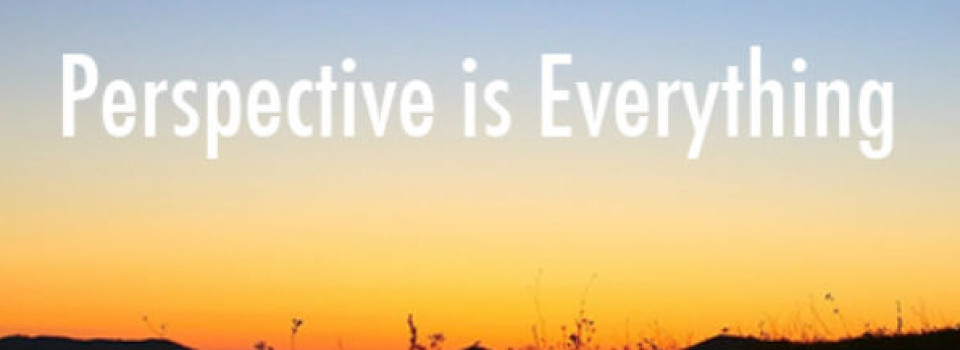
I myself am guilty of believing that suicide is a selfish act. Then I lost my father to suicide, and my belief system has completely changed. People who die by suicide have an illness; a disease of the brain. It just doesn’t manifest itself like other illnesses, making it difficult for those to see the depth of the individual’s pain. John’s Mom lost her son to suicide at the young age of 25. We wanted to share her grief story as it challenges the belief that suicide is a selfish act. I want to thank John’s Mom for her willingness to share her story.
My Take on Anger
Written By: John’s Mom
My son, and only child, died by suicide on April 29, 2014. He was 25. His battle with depression was deeper than we knew; I think deeper than he knew as well. He lived far away from us, so we didn’t “see” anything. According to friends, classmates and professors, he was not even on their radar as someone who was either depressed or suicidal.
I do believe he attempted to use his prescribed medication to lift him out of the depression, in the month before his death. After his death, I learned he had done that before. This final time, I believe it had the opposite effect and exacerbated the suicidal thoughts and deepened his trance. The disease gained the upper-hand and he was powerless against it.
So, how does my opening paragraph address anything about anger? Well, suppose he had cancer or another life threatening physical ailment? Would I be angry with him for dying or would I direct my anger at the disease? Would I hold myself accountable for not knowing, or seeing the signs, or doing enough to help him? Or would I instead talk about his valiant fight? How he gave it all he could until the disease finally gained the upper-hand and his will to live and our love for him was not enough to win the battle?
I have not had anger at my son because I simply don’t accept that MY son did this to himself. I know the disease did it. Sure, I’m plenty angry that my incredibly brilliant, kind, funny, and handsome son would get this illness. And that his strain turned out to be the fast moving, aggressive kind of depression. Yes, I wish it could have been me instead. I would have died for him in less than a heartbeat.
I never believed in the adage “Suicide is a selfish act”. Even in the depths of my despair over the loss of my son, I wasn’t truly suicidal. I thought I was. In fact, on the plane the next morning I kept telling my husband that we just had to go tend to his affairs and such and then we could go too. But I never formulated a concrete plan. I never lost sight of what it would do to those we would leave behind. I’ve had moments where I don’t see the point of going on in our new normal; because what is the point of it all if I’ll never have all the joys of motherhood that were still mine to have? But my grief-stricken brain is just that; grief-stricken. But it’s not ill.
There’s sorrow for my loss and situation but depression as a disease is not in my brain. It was in John’s brain. The disease took over his brain. It controlled his thoughts and actions. It deprived him of the true reality. He wasn’t selfish in his final act. He was desperately hopeless and could not see any way that he would ever be well. He could not see help or hope around him. He could not ask for help because the depression eating away at his brain convinced him that there was none to be had. He was no longer him. At the end, he was a disease-addled version of himself. And the cruelty of this life-threatening illness is that it can so master its victim that signs and symptoms are masked and hidden.
It gets complicated because when there’s a suicide, the suffering person takes the life-ending action instead of a tumor taking over an organ and spreading within their body, finally ceasing the body’s functions. It seems like with a death by suicide “it was their will” and with cancer or other physical aliments, it’s a death “against their will”. But I don’t believe that. The logic of a mind free of depression cannot presume to know the logic of a mind consumed with a deadly mental illness. The diseased mind creates and puts its victim in an alternate reality.
The same thing can and does happen with other illnesses. We see people physically suffer and deteriorate until finally everyone calls their death a “blessing” as it ends their struggle and suffering. I have watched loved ones die like that and they are also in an alternate reality. But it’s one that we can see. That’s not always so with depression or other mental illnesses. It’s not as easy to see the struggle and suffering but I believe it’s just as great; if not greater.
Make no mistake about this; I won’t ever see my son’s death as a blessing and end to his struggle. It will be the greatest tragedy I endure for the rest of my days. I will never stop grieving him and having really bad days; I know that for sure. I will never stop wishing I could have known or done more. But I will never be angry with him; I will continue to love him as I would if he were still physically here with me.
I am and will continue to be very angry with depression and the state of mental healthcare in our world. But those are battles I’ll need to gain more strength to fight.
*This post first appeared on the Alliance of Hope Forum . Reprinted with the permission of the author. Visit our moderated community of support to those who have experienced the tragic loss of a loved one to suicide.




I could have not said this any better. It is exactly how I think and feel about my daughter’s suicide. She was the most unselfish, giving, kind and sweetest person I have known. I was honored to be her mother for the short 23 years of her life and honored to do the job that God intended me to do, to take care of her during her struggles with OCD, anxiety, and deep depression that only God understood and called her home in peace.
Beautifully said John’s mom. Thank you for sharing and I am so very sorry for your loss…
Kimberle
My husband of 25 years commited suicide in September .. Yes , depression is a thief that robs us of our loved ones . I sneaks into their brain and steals their love, their joy , their reasoning and thier reality. It lies to them , it says hurtful things to them and makes them feel worthless and hopeless. It whispers nasty untruths and robs them of thier hopes and dreams and any thoughts of a peaceful future. Depression is a thief !
Whoah this weblog is magnificent i really lik studying your
posts. Stay up the great paintings! You already know, lots of persons are hunting roynd for this information, you could help them greatly.
If one has reached middle age, has no family left, and no children, and makes plans for the suicide so it is as mess-less as possible, and distributes his or her estate in advance to charity, and realizes his carbon and Social Security footprint will terminate thus not depriving others, I would consider it “selfless” rather than “selfish.”